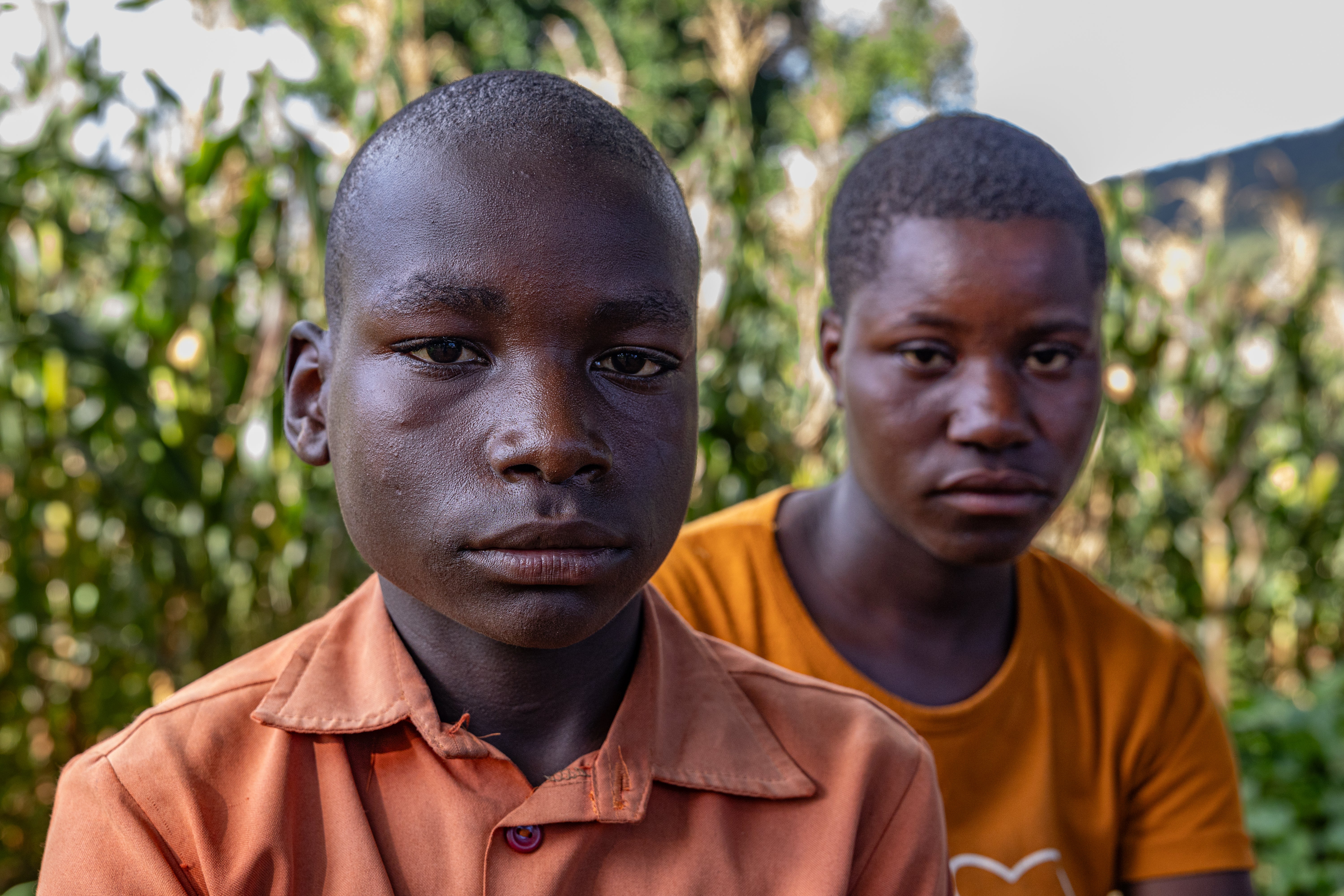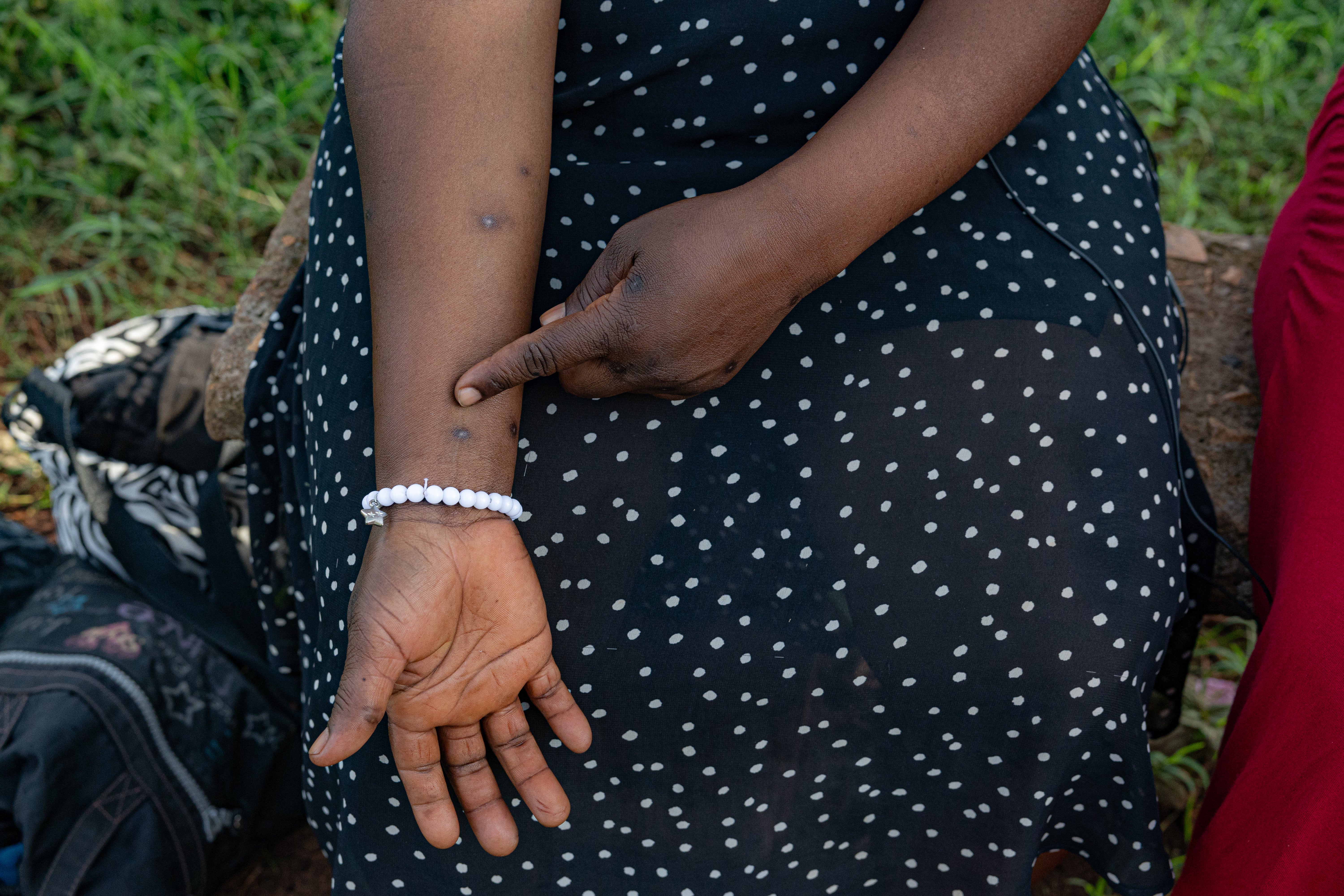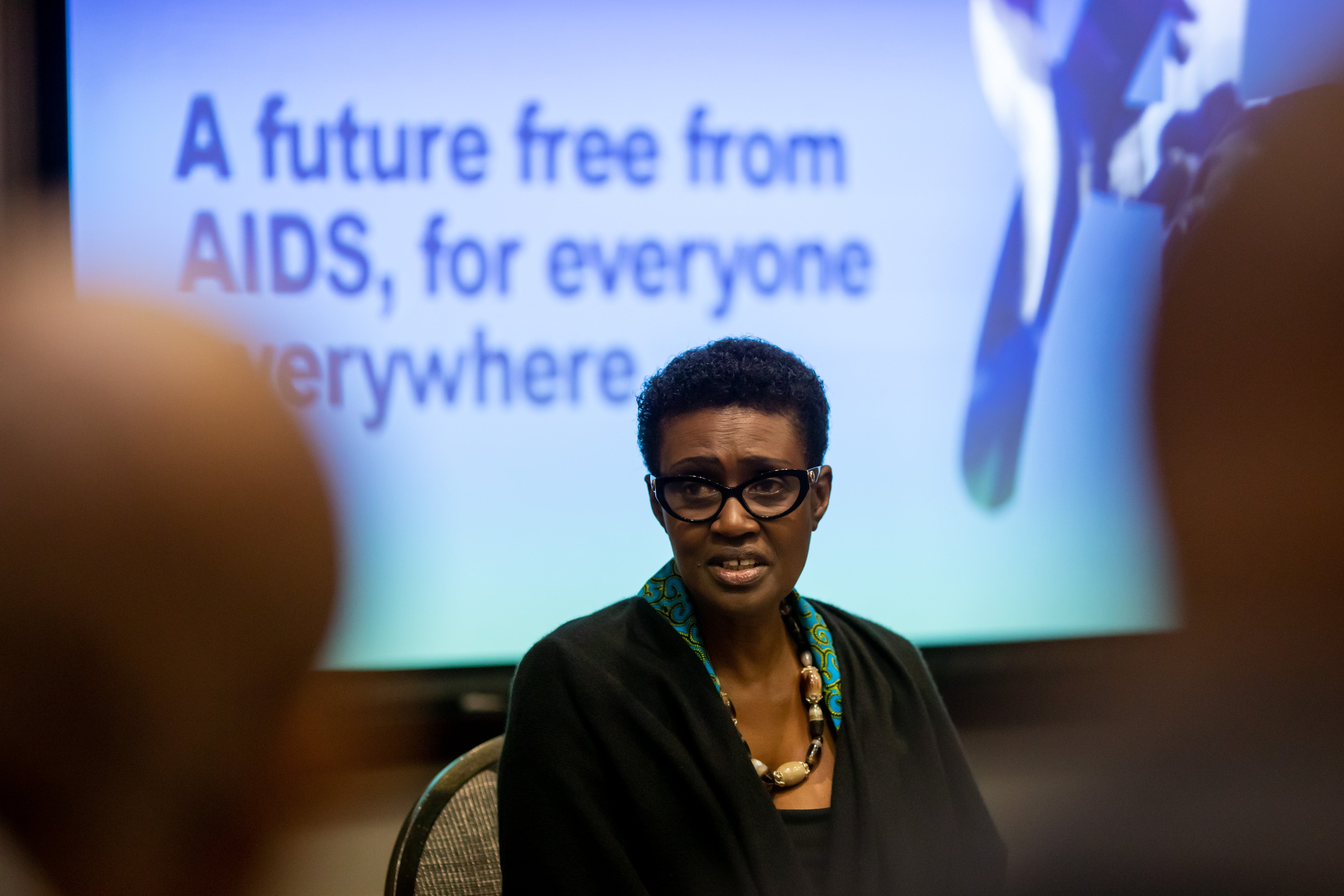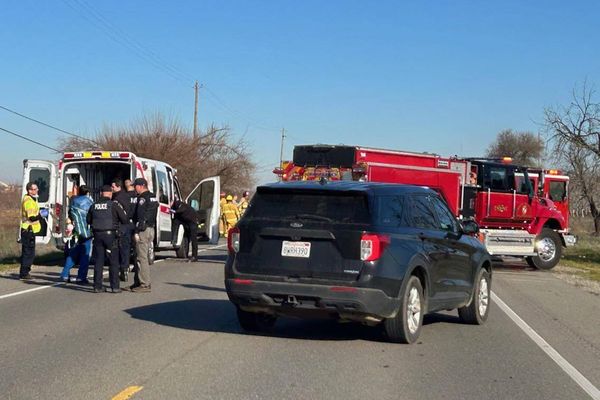The UK should “fight to the finish line” and help end the Aids pandemic, especially with “miracle” prevention drugs now available, the head of UNAIDS has urged amid unprecedented global aid cuts.
The world was on track to ending the HIV/Aids pandemic by 2030. But massive reductions in funding from the US, Europe and now the UK have caused the “biggest ever disruption” to services, Winnie Byanyima, UNAIDS executive director, told The Independent ahead of the launch of its annual report on Tuesday.
If these cuts continue, in the same time frame there will be millions more deaths and infections, as well as double the number of medication-resistant strains, according to The Independent’s own modelling of data in an eight-month project reporting across Uganda, Zimbabwe and Senegal.
This will probably worsen as further reductions to UK foreign aid spending are expected to be announced at the end of the year. The Independent is urging Sir Keir Starmer to ring-fence this funding in a campaign launched this week ahead of World Aids Day on 1 December.
Byanyima, who is from Uganda and lost her brother to Aids, urged the UK to protect the remaining funding, particularly given new prevention tools – like lenacapivar – are on the cusp of being rolled out which could bring new infections down to zero.
“We are so close to finishing this race. Forty years ago we had nothing. Today we have a range of tools that could help us to stop new infections completely, and we have treatment tools that keep people healthy for the rest of their lives,” Byanyima said, speaking from South Africa, home to the world’s largest number of people living with HIV.
“We have on the market now, these tools we call magical. Lenacapavir [injection] has almost 100 per cent efficacy. If you take it, you will not get infected, and it's injectable once every six months.
“On the prevention side… this is a miracle for us. We need to move it fast and at scale.
“The UK has been one of the first, the most consistent and steady supporters of the global Aids response, putting its aid money behind developing countries that need it.
“Thirty-two million people worldwide are already on treatment. But we still need to bring 9 million people onto treatment. We can race to the finish line.”
Cuts are ‘alarming’
Today we have a range of tools that could help us to stop new infections completely
This year has seen an unprecedented crisis for the global HIV/Aids response.
It started in the early days of Donald Trump’s presidency when he slashed millions of dollars of USAID funding to Pepfar, its global HIV/Aids response programme. For many countries in sub-Saharan Africa, the healthcare system was almost entirely reliant on that money and so the abrupt withdrawal, with no time to diversify, was deadly.
Although a waiver was put in place for life-saving care and some funding has now been reinstated, in the chaos The Independent witnessed HIV patients dying due to losing access to drugs, HIV-positive mothers unable to halt transmission to their unborn babies, people with disabilities dying for a lack of transport to clinics, and medics working for free and struggling to treat their clients with dwindling supplies.
The repercussions were felt more deeply when the UK announced this month it will axe £150m from Britain’s contribution to the Global Fund, the world’s largest funder of treatment for Aids, tuberculosis (TB) and malaria, putting 250,000 lives at risk, many of them children.

Further cuts are expected towards the end of the year after Starmer announced plans to cut aid spending from 0.5 per cent to 0.3 per cent of the UK’s gross national income (GNI). That amounts to a roughly £6bn cut from a current budget of £15.4bn.
The UK was the fifth biggest international donor to UNAIDS but is expected to further slash its yearly contribution to the agency.
Byanyima said that these steady reductions are “really alarming”.
“The UK should stay on course and help the world to end this disease. This is global,” she warned.
High-risk groups, teenage girls most impacted
Byanyima said the biggest concern is for the most vulnerable and high-risk – like members of the LGBT+ community, sex workers and those who inject drugs – who face discrimination and criminalisation. Their prevention and treatment programmes were largely covered by foreign aid.
Another group she is worried about is girls and young women. Globally, 45 per cent of all new HIV infections in 2024 are women and girls. In fact, every week in 2024, 4000 girls and young women aged 15 to 24 years old became infected with HIV – 3,300 of these infections occurred in sub-Saharan Africa, due to human rights violations, sexual and gender based violence. Even access to education plays a major role: if a girl completes secondary education, her risk of being infected by HIV drops by up to 50 per cent, according to the UN.
While the US has agreed to reinstate much of the Pepfar funding, the White House has made it clear that it “comes with conditions that undermine what could be its maximum impact, like not paying for sexual reproductive health and rights,” Byanyima continued.

Donald Trump, who rose to power backed by the Christian evangelical vote, has campaigned on a strict anti-abortion platform. Much of his wrath against USAID was centred on the $600m of annual spending on global family planning, which includes sexual reproductive health. That was cut, and the State Department confirmed that money will not be reinstated.
Byanyima said this will add to the already overwhelming impact on teenage girls and young women.
“The evidence [shows that] new infections have been coming down because we focused on the at-risk groups and we protected them through reproductive health services, through sexual health education… it is lifesaving.”
She said that Europe, including the UK, who understand this could “step up”.
“We miss European funding. We miss UK funding, not just because of the amounts, but also because of what it pays for.”

Miracle drugs to end Aids
The massive drop in funding comes amid cutting-edge discoveries.
One of them is a new drug called lenacapavir: a twice-yearly injection produced by California-based biopharmaceutical company Gilead Sciences, which reportedly provides near-total protection from developing the virus.
At the moment there are still 1.3 million new infections every year. With lenacapavir, “we can drive down the infections to zero”, Byanyima continued.
“That can be the real revolution that takes us close to ending Aids as a public health threat. But we need to move fast and to scale, to get it to all the people at risk, and they’re mostly in Africa.”
One of the issues UNAIDS has faced is trying to get Gilead Sciences to licence the production of the drug where it is needed the most, she said.
At the moment Gilead Sciences has – according to the UN – not licensed in Latin America, where new infections are rising, or sub-Saharan Africa, which has the largest HIV positive populations. Instead, Byanyima said it licensed an Egyptian company that has not traded in Africa at all, and that has not worked on HIV.
The issue is also the price. Right now in the US, the injection can cost up to $24,000 (£18,000) a year, she continued. UNAIDS has managed to get the price down to $40 (£30) per person per year in the developing world.
“But we need to go further. Our researchers say that it will come down to $25 (£19) per person per year,” she said.
Gilead Sciences has partnered with Pepfar and there are pilot projects launching in a number of countries to roll out the drug, but it needs to “move faster”.
Moving away from aid dependency
In many countries, there have been efforts to build internal resilience and move away from aid dependency, which has been made harder because of the suddenness of the cuts.
Byanyima described countries creating innovative taxes to fill the gap, reprioritising and reallocating budgets, and trying to push forward ambitious agendas of local production of medicines, although intellectual property monopolies continue to drive up prices.
In South Africa, with the abrupt slashing of American aid, the government moved quickly to move the files of high-risk people who would usually go to USAID-funded centres to newly created safe spaces in mainstream hospitals.
But they still need support. She directly implored the British people.
“You fought this now for 30 years, investing your money every year since the global response started, fight to the finish line. We are close to the finish line.
“It isn’t just charity – this is global. When you don’t end it, it incubates and comes back to other parts of the world to haunt you.
“So end it. End it for the whole world. ”
This story is part of The Independent’s Rethinking Global Aid series







